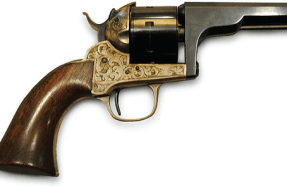
In our November 2021 issue, we introduced a two-part series dedicated to the remarkable but typically overlooked Civil War accomplishments of 12 civilians on both sides of the Mason-Dixon Line. The first part of the series running in that issue featured a lineup that included, among others, a former-slave-turned-seamstress; a uniform manufacturer; a photographer who wielded his camera for interests on both sides of the conflict; a wily diplomat; and a Catholic priest with Confederate loyalties and an astonishing knack for writing poems. Part 2 of our series highlights the Herculean wartime efforts of 12 more of these average citizens, from a housewife who overcame balancing motherhood and mercantile demands, to a journalist who traversed roughly 900 miles following the Army of the Potomac during the Gettysburg Campaign, to teenage girls instrumental in a pair of resounding Confederate victories. Regardless of where these individuals’ sympathies lay, or their age or vocation, it is fitting that we acknowledge their deeds.
ELIZABETH CAROLINE BUTLER (1837–1911)
Born in Autaugaville, Ala., on October 7, 1837, Elizabeth Butler had, as a young girl, traveled west with her parents, extended family, and neighbors. At 18, she married Allan T. Daniel in Lauderdale County, Miss., and the following year gave birth to a daughter, Nancy. While pregnant with her second child—a son they would name Henry—Elizabeth traveled with her husband to the community of Eutaw in Limestone County, Texas, where he began working as a farmer and rancher. In early 1860, she would be blessed with twin boys, George and William.
Having to take care of four small children and managing the day-to-day struggles on the frontier was demanding enough, but Elizabeth was about to experience even more discord with the untimely death of her husband that April. The death of a spouse on the frontier was a common occurrence, of course, and Elizabeth did what many such widows did and remarried, this time to dry goods merchant and postal worker Isaac Ellison, nine years her senior.
To defend the Lone Star State’s interests during the war, Texans enlisted in droves at their county seats. Younger, unmarried men were usually the first to go, but Isaac was eventually among those called to duty. In his absence, Elizabeth strove to keep the dry goods store and post office running, while continuing to juggle being a full-time






